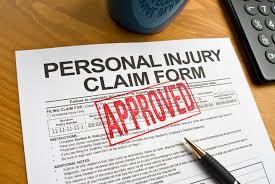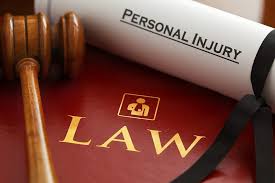What is the Personal Injury Claim Process?
When you are injured in an accident because of someone else’s negligence, a whole process begins that can be a little confusing. One good thing that can be said about the personal injury claim process is that it almost always follows a logical and predictable path—step by step. This process involves finding and hiring an attorney, understanding the basic laws governing personal injury, filing a complaint, gathering evidence, attempting to settle, and then if necessary, going to trial. For the most part, these steps will be followed in order.
Knowing these basics about the development of your claim will greatly benefit you by giving you a familiarity with what is coming next and allowing you to plan ahead. Let’s break down each area of the personal injury claim process.
Hiring and Retaining an Attorney
The first thing you need to do after being injured in an accident is to research and retain a personal injury lawyer. Of course, you do not have to hire an attorney in order to file an injury claim; however doing so will provide benefits that will greatly outweigh any negatives in the end. That’s because injury victims who hire an attorney receive larger settlements on average, have less stress to deal with, and have an edge over the process since they have a knowledgeable professional working on their behalf.
Understanding a Personal Injury Claim
It will be helpful to understand exactly what a personal injury claim is before we go any further. A personal injury claim is a formal process in which the injured party (plaintiff) seeks financial compensation from another party that they feel is liable (defendant). The plaintiff may consider the opposing party to be responsible for their damages because they caused the injury or because the incident is covered by an insurance policy; or both.
This process begins with a demand letter, in which the plaintiff formally requests payment for their damages from the defendant. If the insurance company refuses to pay or a compromise cannot be reached, the case will proceed to the lawsuit stage. These two parts of the process are called pre-litigation and litigation.
Sending a Demand Letter
Once you have completed and understand the steps above, it’s time to get the actual process started. This almost always starts with something known as a demand letter. The demand letter is the central focus of any personal injury claim. In it, the injured person lays out their argument to the insurance company for why they should pay for the damages. This includes:
- Why the defendant is legally responsible or liable.
- A summary of the injuries sustained.
- What medical treatments were required and how much they cost.
- How much income the plaintiff lost because of time off work.
- Any other damages suffered, like pain and suffering.

Understanding the Discovery Process
Discovery is exactly what it sounds like: the discovering of information about the case. This is an integral part of any legal process. During discovery, both the defendant’s and the plaintiff’s attorneys will gather evidence, investigate the claim, speak to witnesses, and question the parties involved. This questioning of the parties involved is known as a deposition. It may also take the form of something called an Examination Under Oath, depending on the circumstances.
Attorneys on both sides will also begin to gather medical bills and records, police reports, wage information, and insurance reports.
All this information helps to form a clear picture of what really happened and to help quantify the amount the plaintiff is owed.
Additionally, it’s during the discovery process that either side can file motions with the court. These may be filed in an attempt to have the case dismissed, delayed, or for a judgment to be reached.

Negotiating A Potential Settlement
This is the pre-court stage where a potential settlement can be negotiated whether liability has previously been accepted or denied. The fact is that all parties involved want a fair and reasonable settlement as quickly as possible to reduce legal costs and court time.
On one side the claimant would be taking advice from their representatives while on the other side the defendant would be doing likewise. It is unlikely that the claimant and the defendant will meet across the negotiating table instead allowing their representatives to try and come to an arrangement. However, at the end of the day it is the claimant who will have the final say over whether any potential settlement is accepted.
While the majority of personal injury claims are settled out of court there are many claims where agreement cannot be reached in the negotiating stage. It is worth noting that issuing proceedings at court is time constrained to within three years of the date of the accident or, where a child is involved, three years from the date of their 18th birthday. The claim form and particulars of claim sent to the court will set out the basis of the claim and the amount the claimant is seeking in settlement.

How to Hire A Personal Injury Lawyer
If you have never sought legal advice for a personal injury claim and are unfamiliar with the process, here’s where to start:
Search for a law firm or attorney who is local and familiar with the judges, medical practitioners, and the jurors in the community where the incident occurred. Then, do some research on the lawyer’s focus interest and, if you’ve set up an initial consultation, ask about their experience.
If they are an experienced attorney, you may want to inquire about their reputation in the market and even take a look into their current cases. Do they appear dedicated to their cases? Do they seem to value the attorney-client relationship? You’ll want to measure your comfort level with the attorney and determine if they are the right person to guide you through the injury claims process.
Types of personal injury claims
There are different ways in which an individual may suffer a personal injury and for which Express Solicitors will be able to help you pursue a claim:
- Road traffic accidents – whether you’re a driver, pedestrian, cyclist, motorcyclist or passenger
- Work place injuries – these include work-related illnesses
- Faulty goods or services
- Medical negligence – errors in hospital or errors in medical treatment
- A slip, trip or fall in a public place
- Holiday accidents
- Accidents in the home
- Accidents involving animals – such as dog bites or horse riding accidents
- Injuries resulting from criminal offences, like assault